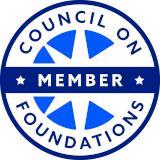Starting Charitable Conversations

Your client wants to express his or her passion for giving back to community in specific ways. We will help you and your client understand community needs and programs. Then direct gift dollars to make the greatest impact.
In most cases, vehicles available to donors:
- Increase income
- Minimize gift, estate and income taxes
- Avoid capital gains taxes
- Pass assets to heirs at a significantly lower cost
- Achieve numerous other personal goals while allowing the donor to make a significant commitment to improve their community
Consider the following when discussing options for planning with your clients:
Year-end tax planning
Your client wants to give back to the community, but doesn’t have time to identify the most deserving charities. A donor advised fund through the foundation offers an immediate tax deduction to your client and the ability to stay involved in recommending grants for years to come. Recommendations are not legally binding, but are taken into grant consideration.
Preserving an estate
While working with your client on estate planning, you may find significant taxes going to the IRS. By asking about or suggesting a charitable gift, such as a bequest or other planned gift, you can help your client reduce their taxable estate and meet their charitable desires for giving to a worthy cause. Click here for the proper bequest language to include in a gift to Main Street Community Foundation in a will.
Retirement planning
Your client needs an income for life, but also wants to help support a nonprofit organization. A life income gift such as a charitable remainder trust will pay an income for life or a term of years to them and a second beneficiary (spouse) if they choose. Upon your client’s death, the gift is distributed by the foundation in accordance with his/her charitable interests.
Alternative to establishing a private foundation
Your client is thinking about establishing a private foundation, but wants a simpler, more cost-efficient method. We can help you and your client analyze the pros and cons of establishing a donor advised fund, or other ways we can be of assistance to an established family foundation.
Achieving financial goals
Your client is facing substantial capital gains taxes and would like to avoid or defer the taxes. An outright gift to the foundation of an appreciated asset, such as stock, can have important financial benefits. Your client would avoid the capital gains tax due on the appreciation, and receive an income tax deduction the year they establish the gift.
Closely held stock
Your client’s net worth is primarily tied up in a closely held company, but he or she wishes to make contribution to the community. Establishing a donor advised fund or planned gift makes your client eligible for a tax deduction measured by the fair market value of appreciated stock (less any planned gift value). They can avoid the capital gain liability, receive an income tax deduction, and utilize a gift asset they may have overlooked.
Sale of a business
Your client owns highly appreciated stock in a company that is about to be acquired. The foundation can work with you to suggest several ways to structure a charitable gift (including the use of planned giving techniques) to help your client reduce capital gains tax and maximize their gift’s impact to their community.
Substantial retirement assets
Your client wants to leave his/her estate to community and family but has substantial assets in retirement accounts. Suggest that they name the foundation as a full or partial beneficiary and leave other assets to family. This gives their heirs more and preserves your client’s charitable intent as retirement assets are subject to income tax, and may be subject to estate and generation-skipping transfer taxes. These combined tax hits can erode the value, leaving as little as 30 percent for your client’s heirs. A charitable donation using an IRA preserves 100 percent of its value.
Explore the possibilities for your clients. Contact us today or view our brochure to learn more.





